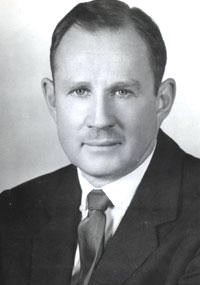Care Ethics Research Consortium Conference 2020
Decentering ethics:
Challenging privileges, building solidarities
University of Ottawa
Ontario (Canada)
October 29-31, 2020
Local organizers: Sophie Bourgault (University of Ottawa)
and Fiona Robinson (Carleton University)
Keynote speakers:
Vrinda Dalmiya (University of Hawaii)
Sandra Laugier (Université Paris 1 – Panthéon Sorbonne)
Care ethics first emerged as an attempt to ‘decenter’ ethics; feminist philosophers like Carol Gilligan argued that women’s moral experiences were not reflected in the dominant, masculinist approaches to ethics, which were centered on a rational, disembodied, atomistic moral subject, able to self-legislate or engage in moral calculus to determine principles of right action. Care ethics challenged this model by positing ethics as relational, contextualized, embodied and realized through practices, rather than principles. Over the past decades, many care ethics scholars have sought to further this project by considering care politically, in relation to the various intersecting hierarchies of power and privilege that inhere in the context of modernity. At this time of political and ecological crisis, there is an even more urgent demand to reflect on this project of decentering ethics and to ask what further work there is to be done. To what extent has care ethics been (un)successful in decentering ethics, challenging privilege and building solidarities? How can ethics – and care ethics in particular – address questions of race, indigeneity, class and gender? How can a care ethics approach help us to reflect on the question of privilege – of moral subjects and of moral/political theorists – while also creating spaces to build solidarities?
Scholars from all disciplines are invited to submit an abstract (between 250-300 words) for a 20-minute presentation (firm time limit) on the theme of Decentering Ethics. We are seeking presentations that explore how an ethic of care has addressed or can address the issues of privilege, hierarchy and solidarity in the contemporary context. All scholarly approaches are welcome including those that address or employ theory, empirical data, applications, policy, aesthetics, etc. Please note that the organizing committee encourages presentations that are not read.
Abstract submission
Please send your abstract for peer review to abstractsCERC2020@gmail.com by Friday January 31st, 2020. In the subject line, please type 'CERC proposal' and your last name. Individuals may only submit one proposal. In your email, please include a brief biographical note (250 words max) with main research interests and institutional affiliation (if applicable).
Attach a Word document to the e-mail that is anonymous and ready for peer review. The Word document should contain:
- the title of the presentation
- the abstract (250-300 words max), which should outline the main arguments of the paper, as well as its theoretical and/or empirical contribution(s) to the existing literature (and a few words on methodology, if applicable)
- presentation equipment requirements (if applicable)
Criteria for selection include: effective and explicit engagement with the conference theme; clarity of the abstract; contribution to the diversity of presentations, and potential significance for advancement of the field of care ethics. Panel proposals will also be considered (please include a brief description of the panel, the abstracts of three papers, as well as the name of a chair and discussant). Poster presentations may also be proposed to the organizing committee of the conference.
Decisions on the abstracts will be communicated before March 1st, 2020. Please note that the abstracts selected for our conference will be posted (as received) on our website prior to the conference.
All conference presenters will need to register for the event prior to the conference program’s official release date. Detailed information concerning accommodation in Ottawa and registration costs will be offered on the CERC website in the late spring of 2020. For questions about the conference or abstract submissions, please write to abstractsCERC2020@gmail.com.
CERC 2020 organizing & scientific committees:
Sophie BourgaultMonique Lanoix
Stéphanie Mayer
Inge van Nistelrooij
Fiona Robinson
Joan Tronto
Merel Visse

















































